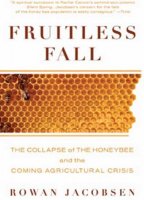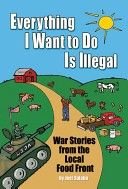It’s quite possible that the environment we live in is in worse shape now than 50 years ago, especially in places like China and Africa. But here, now, it looks, tastes, and smells a lot better. And not just because fewer people are smoking.
I remember when the Cuyahoga River caught on fire, and when it was said you could develop film in the Genesee downstream from the Kodak factory. My father worked for General Electric in Schenectady, and used to say that they returned the water to the Mohawk cleaner than it was when they took it out, which was no doubt true but should not be taken as an endorsement of the effluent.
The air in Pittsburgh was so full of smoke and particulates that when the Church of the Ascension expanded, they used black stone in order to match the soot-darkened original.
Automobile exhaust was something awful. It’s not nice even now to walk or bike along a road full of cars, but nothing like what it was before pollution controls.
I even remember when the Freihofer bread delivery truck was horse-drawn, and you can guess what that did to the streets. (But I loved to sit on our porch and watch it pass by!)
Environmentally, this is not a secure time to be living. What’s more, I know that the improvements to our air and water quality are only partly because of pollution control laws. Pittsburgh is a clean, breathable city because they no longer make steel in the home of the Steelers. We have outsourced and off-shored our pollution as well as our jobs.
But when it comes to breathing and drinking, I’m thankful for today.
This post could also be viewed as a mere excuse for sharing my favorite Tom Lehrer song of that era.
Permalink | Read 3092 times | Comments (0)
Category Conservationist Living: [first] [previous] [next] [newest] The Good New Days: [first] [previous] [next] [newest]
 Thinking in Pictures: And Other Reports from My Life with Autism, by Temple Grandin (Vintage, 2006) (Expanded from the original 1995 version)
Thinking in Pictures: And Other Reports from My Life with Autism, by Temple Grandin (Vintage, 2006) (Expanded from the original 1995 version)
I’ve already written about Temple Grandin, the movie, which was the inspiration for getting this book from the library. It’s well worth reading, and the only reason I’m sending back unread the two other books of hers I picked up at the same time is that I realized I must put the brakes on my reading for a while. At the very least I need to substitute books I won’t be tempted to review. 
Thinking in Pictures would have convinced me, if Grandin’s own commentary on the DVD had not, that the movie is an accurate, if not perfect, portrayal of her life. It’s fascinating to read about autism from the inside out, as it were, and also interesting to note her opinion that for all the advances we have made in understanding autism and Asperger’s syndrome, as a child in the 1950’s she had a few advantages over today’s children. School classrooms were well-ordered and quiet; the noise and chaos often seen classrooms now would have been impossible for her to handle. Parents, teachers, and other adults worked hard to instill good manners and polite behavior into children; these are difficult but essential skills for autistic children to learn, but they are sadly neglected today. Finally, there were no video games then, which encourage solitary activity; she was forced to interact directly with other children through board games, outdoor play, and other normal, 1950’s-era activities. (More)
Permalink | Read 3333 times | Comments (0)
Category Reviews: [first] [previous] [next] [newest] Health: [first] [previous] [next] [newest] Food: [first] [previous] [next] [newest] Conservationist Living: [first] [previous] [next] [newest]
 Temple Grandin (HBO, NR)
Temple Grandin (HBO, NR)
Why are you reading this post when you could be rushing to your nearest video store (is that phrase as passé as "dialing a phone number"?) and grabbing a copy of Temple Grandin? It would be trite to say that this is one of the most amazing and inspiring movies I have ever seen, though it is. It would be understatement to say that Temple Grandin is an incredibly amazing and inspiring person.
"Highly functioning autistic" doesn't begin to describe this brilliant visual thinker—and university professor—whose humane designs have revolutionized livestock handling. My introduction to Temple Grandin was through her TED lecture, The World Needs All Kinds of Minds. That's a good place to start, but don't miss the movie. (As far as I can recall it is completely grandchild safe.) (More)
 Fruitless Fall: The Collapse of the Honey Bee and the Coming Agricultural Crisis, by Rowan Jacobsen (Bloomsbury, New York, 2008)
Fruitless Fall: The Collapse of the Honey Bee and the Coming Agricultural Crisis, by Rowan Jacobsen (Bloomsbury, New York, 2008)
Fruitless Fall had been my "to read" list since mid-2009 and, thanks to generous family, on our bookshelves since Christmas. I loved Jacobsen's Chocolate Unwrapped, so why it took so long to begin this book is beyond me. Once begun, however, I couldn't stop, and finished it the same day. There are a few compensations for being sick and not having the energy to tackle much of anything else.
Speaking of feeling sick ... Fruitless Fall is scarier than The Omnivore's Dilemma, Food, Inc., and Everything I Want to Do Is Illegal combined. Or perhaps the effect is cumulative.
That's not to say the book isn't a delight to read, doing for honey and beekeeping what John McPhee's Oranges did for the citrus industry many long years ago. (I wish someone would write an update, as McPhee's book ends when frozen concentrate was king.) The overall theme is the recent precipitous and inexplicable decline of bees and beekeepers, with many side notes (some delightful, some frightening) along the way. (More)
Micro Mobility Systems makes classy scooters, and look what I discovered when I ventured onto their website from a FRK article:
I like to take the bus to the airport, but the mile and a half walk to the bus stop is hard on luggage wheels. They're not designed to take long distances on concrete. But this is! It's a scooter, zipping one to the bus stop and then folding to cabin-baggage size.
On second thought, it wouldn't really solve my problem, as cabin-baggage isn't that hard to haul to the bus; my real problem comes whenever I have to bring a bag big enough to check—the weight is much greater and the wheels no better. With Lufthansa having an 18-pound carry-on weight limit, the scooter part probably adds an unreasonable amount of overhead, anyway. But it's still a cool idea.
Micro Mobility's scooters in general look pretty classy. They might make a nice addition to bicycles and trams in the Swiss commuting arsenal.
Permalink | Read 2836 times | Comments (1)
Category Everyday Life: [first] [previous] [next] [newest] Conservationist Living: [first] [previous] [next] [newest]
 Everything I Want to Do Is Illegal: War Stories from the Local Food Front. by Joel Salatin (Polyface Inc., Swoope, Virginia, 2007)
Everything I Want to Do Is Illegal: War Stories from the Local Food Front. by Joel Salatin (Polyface Inc., Swoope, Virginia, 2007)
Until now, I've written more about Joel Salatin than I've read by him: almost a year ago in Strange Bedfellows? Not Really, and three months later in my review of The Omnivore's Dilemma. Wanting to correct that sin of omission, I grabbed the only one of his books available in our local library: Everything I Want to Do Is Illegal.
On every side, our paternalistic culture is tightening the noose around those of us who just want to opt out of the system. And it is the freedom to opt out that differentiates tyrannical and free societies. How a culture deals with its misfits reveals its strength. The stronger a culture, the less it fears the radical fringe. The more paranoid and precarious a culture, the less tolerance it offers. When faith in our freedom gives way to fear of our freedom, silencing the minority view becomes the operative protocol. — Joel Salatin
Salatin wants to opt out of a little more of the system than I do, but I hear his cry. You could call him bitter, but if you consider the miracle that is Polyface Farms, you have to wonder why our government is working so hard to stamp out such elegant, inexpensive, healthy, delicious, and truly "green" (in a conservationist sense) endeavors. (More)
Permalink | Read 5253 times | Comments (1)
Category Reviews: [first] [previous] [next] [newest] Politics: [first] [previous] [next] [newest] Children & Family Issues: [first] [previous] [next] [newest] Food: [first] [previous] [next] [newest] Conservationist Living: [first] [previous] [next] [newest]
Maybe this post should be "readjustments," since I'm now home and experiencing reverse culture shock, but it's still worth talking about transportation.
Basel is a city, albeit one of the nicest cities I know. It's the third largest in Switzerland, a little smaller in population than Providence, Rhode Island or Tallahassee, Florida, but a lot more dense. I'm not fond of cities, in general, but if you wanted to design a situation that is perfect for public transit, walking, and biking, you could hardly do better—and Basel made a conscious choice, back in the 1970's, to encourage those modes of transport. (More)
With all the fuss lately about illness caused by salmonella in eggs from factory farms with highly dubious practices, it was especially delightful to take a trip—farther than the grocery store, but closer than our church—to Lake Meadow Naturals farm. They have a pick-your-own program on Saturday mornings, and we did just that, reaching under the hens to retrieve a dozen warm-from-the-hen eggs, at a price of $3.50.
Unlike many of that designation, these hens really are free-range: they were ranging all over the yard when we arrived, along with several other types of fowl, including guinea hens, which are the pest control service, being voracious eaters of ticks and other nasty bugs.
I really liked the look of the place, and the friendliness, and hope to return many times for wonderful, fresh eggs. I'm a little disappointed that the yolks are not the deep orange color of the eggs Heather gets from her farming friends, and of the eggs we ate at the bed and breakfast in the Ticino part of Switzerland. But there's no doubt these chickens are healthy, free-range, and lovingly cared for, so I'll be happy with that. Maybe when their less-common breeds are laying I'll notice more of a difference.
We also bought two duck eggs, which were good, but not sufficiently discernable from chicken eggs to encourage a wholesale switch, since we paid $1 each for them. Maybe next time we'll try the guinea hen eggs. :)
I like the trash collection system here in Basel: You buy special blue garbage bags, each 35 liters in size (about 9 gallons), which is considerably smaller than an American "large kitchen trash bag." They are, however, much tougher, and can be well-stuffed without ripping. You pack your trash as efficiently as possible into as many bags as you need, and put them out in the street at the appropriate time for collection.
That's it. The cost of trash collection is included in the cost of the bags, and thus you pay proportionately for the amount of trash you produce. There is significant incentive to minimize your waste, yet the capacity to dispose of more is there if you need it. Ideally, you would pay by weight rather than volume, but the system is so easy, it is a worthwhile compromise. I think of a friend's complaint that she can't help feeling annoyed at seeing her neighbor's routine weekly pile of 10 or more large bags as she makes her own family's one-small-bag contribution to the landfill collection; she would welcome such a system in her town. As would I.
Recycling is different here, too, though I haven't decided if it's better or worse. Plastics and metals must be taken to a recycling station instead of being picked up at the curb as I'm accustomed to, but such stations are only an easy walk away. Only one type of plastic is recycled ("PET," known in the U.S. as PETE or #1); our county recycles any type of plastic as long as it has a number code. On the other hand, paper is picked up at the curb, and they recycle all sorts of paper, including office paper, which our county excludes. Not worse, not better, just different—and not any more different than the variability from community to community in the U.S., as we discovered in moving among New York, Pennsylvania, Massachusetts, and Florida.
I left the new family to their own devices on Saturday morning, when Stephan's mom whisked me away for an adventure. There is a small farm in nearby Riehen which, as I understand it, specializes in biodiversity/heritage breed conservation of berry plants. On this day, they opened their farm to the public for tasting! We could take nothing away, not even by purchase, but were welcome to taste and enjoy all we wanted.
(Somewhere therein is a metaphor for life, I'm certain.) (More)
Permalink | Read 3410 times | Comments (2)
Category Travels: [first] [previous] [next] [newest] Everyday Life: [first] [previous] [next] [newest] Food: [first] [previous] [next] [newest] Conservationist Living: [first] [previous] [next] [newest]
I try not to say too much about our current Federal administration, even though much of what they are doing scares me. (Yes, this is restraint. Believe me.) So when they say something I actually like, it's fun to be able to acknowledge it. (HT Margaret Gorodetzer via Facebook, and Joan Lowy/the Huffington Post.)
With the caveat that I haven't investigated the story at all, Transportation Secretary Ray LaHood is my current hero for his recognition that walking, biking, and public transit are important ways of getting from one place to another in daily life, not just recreation or the last refuge of losers who have lost their drivers' licenses Talk is not action, but it's a beginning. (More)
"Cash for Clunkers," Appliance Edition. I've been looking forward to Florida's appliance rebate program ever since I first heard rumor of it. Our refrigerator was old when we bought it used in 2001, and I'm sure it uses up much more energy than a refrigerator should. Plus, who knows how long it will last?
Actually, that question is spurious. Our neighbors bought a new, high-end appliance a few years ago and it has required multiple repairs—even while still under warranty—whereas our old clunker is still going strong, albeit with strange nocturnal (and diurnal) noises. Still, you never know.
However, this is no "shop carefully, get the best deal, purchase your appliance, and apply for the rebate" program. (More)
Permalink | Read 2882 times | Comments (0)
Category Everyday Life: [first] [previous] [next] [newest] Conservationist Living: [first] [previous] [next] [newest]
Sometimes the difference between a useless tool and a helpful one, or a good tool and a great one, is merely a matter of imagination.
I dislike decorative trinkets, and most especially if they must be dusted. My mother-in-law, however, loved them, and we received many gifts that were more in line with her preferences than mine. Thus I wasn't entirely pleased when she proudly presented me with a Charleston, South Carolina sweetgrass basket, beautiful as it was. But inspiration hit, and instead of hanging it as a wall decoration, I put the basket on a desk in our entranceway. Not only does it look lovely, but in an instant I solved my perennial "where are my keys?" problem! Because the basket gets continual use, it never needs dusting, and its presence must have saved me, over the years, hours of searching time. The right tool in the right place. (More)
Permalink | Read 4985 times | Comments (0)
Category Everyday Life: [first] [previous] [next] [newest] Conservationist Living: [first] [previous] [next] [newest]
What do hippies and Christians have in common? A lot more than you might think.
The stereotypes: Hippies are free-lovin', goddess-worshipping ultra-liberals who rebel against society's norms and customs; Christians are moralistic, hyper-conservative corporate capitalists; and never the twain shall break bread together.
Quite the contrary. Christians and hippie types alike tend to look at society's conventions with a skeptical eye. (More)Permalink | Read 4037 times | Comments (0)
Category Random Musings: [first] [previous] [next] [newest] Conservationist Living: [first] [previous] [next] [newest]
I don't know why anyone would want to annoy a worm, but apparently lemon balm does the trick. I had some less-than-perfect leaves that I didn't use in making my lemon balm tea, so I fed them to the worms. Rather, I put the leaves in their bin; feeding was out of the question. The next time I checked, all the worms were huddled on the side of the bin furthest from the leaves. They didn't seem particularly unhappy, but they didn't return to the other side until a few days after I removed the offending foliage.
Permalink | Read 3424 times | Comments (0)
Category Everyday Life: [first] [previous] [next] [newest] Conservationist Living: [first] [previous] [next] [newest]



